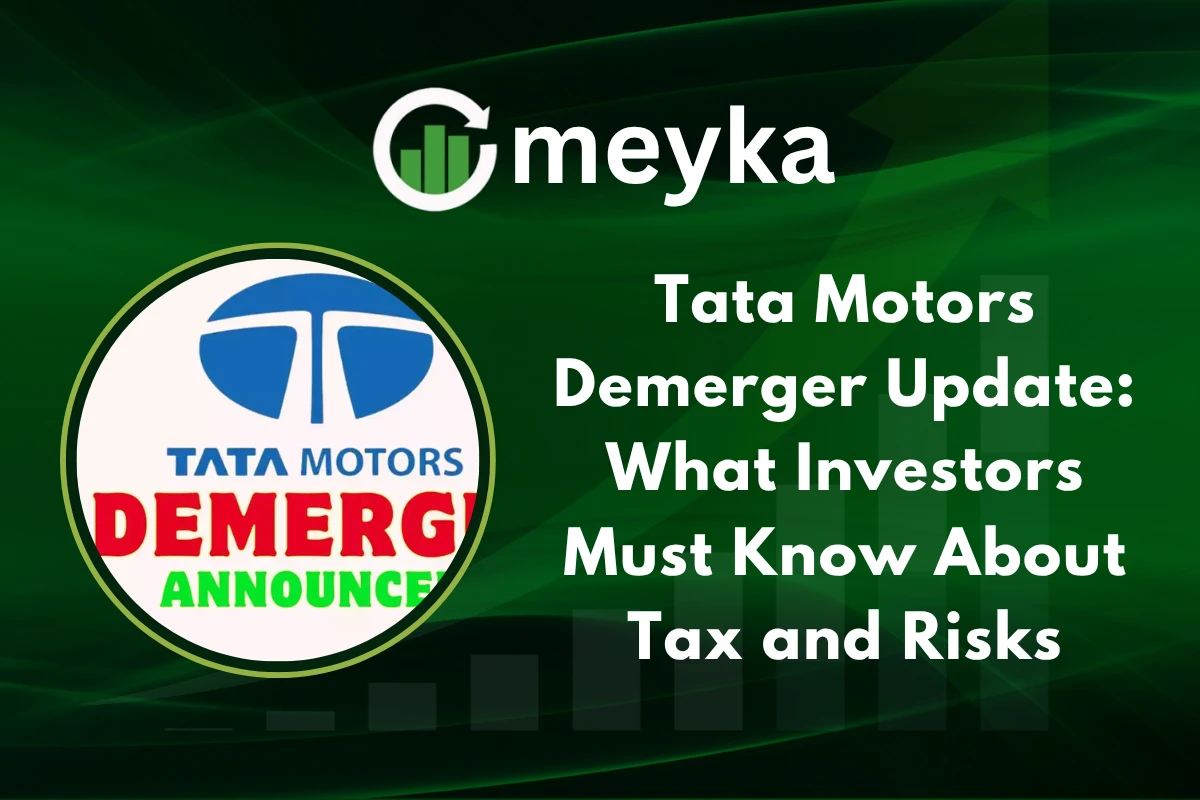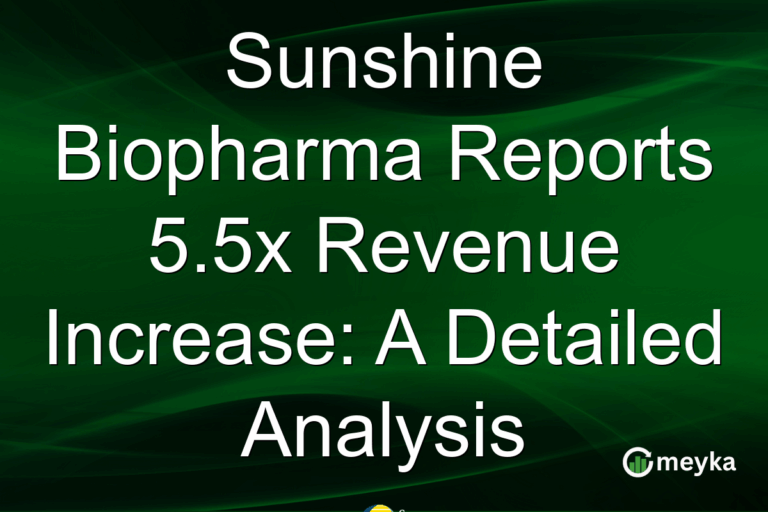Tata Motors Demerger Update: What Investors Must Know About Tax and Risks
The Tata Motors demerger is now a live event that matters to every shareholder. The company has split its commercial vehicle and passenger vehicle operations, and set a formal record date for allotment of new shares. That move creates immediate questions about tax treatment, timing of new share credits, and the short and medium term risks for investors.
In plain language this article walks through the tax rules you must know, how the market has reacted, what risks to watch in passenger and commercial vehicle businesses, the role of Jaguar Land Rover, and the practical steps shareholders should take before and after the record date. Facts here are based on reporting from Moneycontrol and The Financial Express.
Tata Motors Demerger Explained
Why the Company Decided to Split Businesses
Tata Motors moved to separate its commercial vehicle operations from its passenger vehicle business to sharpen focus, simplify capital allocation, and create clearer value for investors.
The split lets each listed business pursue its own strategy, for commercial vehicles a classic volume and fleet focus, and for passenger vehicles a stronger emphasis on electric vehicles and the Jaguar Land Rover portfolio.
Market commentators say the aim is clearer governance and better visibility of each business’s performance.
Record Date and What Investors Should Note
Tata Motors fixed Tuesday, October 14, 2025 as the record date. Shareholders holding stock on that date will receive one equity share of the new commercial vehicle company, TML Commercial Vehicles Limited, for every one Tata Motors share they own, a one for one swap.
The company has said the new CV shares are proposed to list on both the BSE and NSE, with credits and listing expected around early November.
The demerger itself took effect on October 1, 2025. These dates determine your eligibility and the likely timing of when new shares appear in demat accounts.
What is the meaning of record date for Demerger? The record date is the cut off day that decides who gets the new demerged company shares; buy after the date and you will not receive the allotment.
Tata Motors Tax Implications
No Capital Gains Tax on Allotment of Shares
Receiving shares in a demerger is not treated as a taxable transfer under the Income Tax Act, so simply getting new shares on the demerger is not a tax event for shareholders. The law treats the transfer under a scheme of demerger as non taxable at the time of allotment. That means investors do not pay capital gains tax just because they received TMLCV shares.
Tax Risks When Selling the Shares
Tax is triggered when you sell either the original or the new company shares. The original cost of acquisition must be split between the two companies based on net book values announced by the company, not on market price, and the holding period of your original shares carries over to the new shares.
This means long term or short term capital gains status depends on your original purchase date, so selling soon after the demerger may have different tax consequences than selling later. Investors should track the apportionment ratio announced by the company and keep careful records for correct capital gains reporting.
Is Tata Motors’ demerger tax free for investors? Receiving the demerged shares is not taxable, however capital gains tax can apply when you later sell those shares, based on the apportioned cost and original holding period.
Impact on Tata Motors Share Price
Stock Movement Around the Demerger Announcement
Markets reacted positively to the formal effective date and record date notice. Tata Motors shares rose intraday and were reported to jump as much as 3 percent, hitting a high near Rs 739 on the day the record date was announced.
Overall, the stock had shown increases in the sessions around the demerger as investors priced in potential value unlock from the split.
Analysts’ Views on Short Term Performance
Analysts gave mixed guidance: some see the demerger as medium term value creating, while others flagged short term volatility around listing and macro conditions.
Brokers typically watch vehicle demand trends, supply chain signals, and JLR performance as key near term drivers for the share price. Investors should expect bumps as the market digests listing flows and initial trading in the new CV stock.
Risks for Investors in Tata Motors Demerger
Market Volatility and Global Macroeconomic Factors
The demerger does not insulate either company from cyclical demand, commodity inflation, or global interest rate moves. Macroeconomic weakness can hit commercial vehicle volumes and passenger vehicle discretionary buys differently, and currency swings can affect JLR earnings.
Shareholders should treat the demerged entities as distinct risk profiles even though ownership remains unchanged.
Potential Challenges in Commercial and Passenger Vehicle Segments
The commercial vehicle unit will face fleet purchase cycles and infrastructure investment patterns, while the passenger vehicle business must manage EV investments and JLR’s global recovery.
Execution on scale, margins and new technology adoption are key risk areas that could influence profitability for each listed entity. Analysts say close monitoring of sales and margin trends will be essential in the next quarters.
JLR and Global Business Considerations
Jaguar Land Rover’s Role in Tata Motors’ Growth Strategy
Post demerger, JLR remains part of the passenger vehicle entity, and its performance will be a major determinant of that company’s earnings. JLR’s recovery, product cycle and margin restoration are important to drive value for passenger vehicle shareholders.
That global exposure also brings exchange rate and geopolitical risks to the passenger vehicle company’s results.
International Competition and the Global EV Transition
Both demerged companies will operate in markets moving quickly toward electrification. The passenger vehicle business must manage heavy capex for EVs, while the commercial vehicle company will face its own electrification and telematics investments. How management prioritizes capex and manages margins will shape long term shareholder returns.
Social Media Buzz and Investor Sentiment
Key Reactions from Market Experts
Market voices and traders shared quick takes on social platforms, noting the record date and the listing timeline. Examples of public reactions include the tweets linked here:
These posts reflect a mix of excitement about potential value unlocking and reminders to watch tax and listing details closely.
Broader Investor Conversations Online
Online discourse ranged from practical questions about how and when new shares will appear in demats to debate about whether the split truly unlocks value or just reorganizes risk. That mix of sentiment often amplifies short term trading swings around major corporate actions.
What Experts Are Saying About the Demerger
Reports from Moneycontrol, CNBC-TV18, and Financial Express
Moneycontrol provided a clear tax primer showing that receipt of demerged shares is not a taxable event and explained the apportionment rules and carryover of holding period. The Financial Express reported the record date and noted the intraday share gains when the demerger details were set.
CNBC TV18 is listed as an authoritative market source, however automated access to its article was blocked for this summary; the Moneycontrol and Financial Express reporting cover the core facts investors need to know.
Long Term Outlook for Tata Motors Investors
Experts say long term gains depend on execution, the success of JLR, and how clearly each new company can grow margins and cash flow. The demerger gives investors two pure play stories to evaluate, but it also requires extra work to follow two sets of quarterly reports and capital allocation choices.
Key Takeaways for Tata Motors Shareholders
Opportunities Post-Demerger
Shareholders may benefit from clearer valuation of each business, focused management teams, and improved comparability with peers. If each unit executes well, the market could assign higher combined valuations than the single parent did.
Risks Investors Cannot Ignore
Tax on sale of shares, short term listing volatility, differing capital needs for EVs and fleet business, and JLR execution risk are all real. Keep good records for tax apportionment, confirm your holdings before the record date, and be ready for price swings once the new CV stock lists.
Conclusion
The Tata Motors demerger is a major corporate event that creates both opportunity and complexity. Receiving new shares is non taxable, the record date of October 14, 2025 determines eligibility, and the market has already shown a near term positive reaction.
Investors should pay attention to apportionment ratios, the holding period carryover, and how each business reports results after the split.
Above all, treat the demerged companies as separate investments, keep tax records ready, and plan for volatility as the new CV stock lists.
FAQ’S
Shareholders who hold Tata Motors shares on the record date of October 14, 2025 will receive shares of the new commercial vehicle company in their demat account.
The demerger is the split of Tata Motors into two listed entities, one for commercial vehicles and another for passenger vehicles with JLR, allowing focused growth and independent strategies.
The effective date of the Tata Motors demerger is October 1, 2025, when the company legally separated its businesses before allotting shares to investors.
The share split ratio is 1:1, meaning investors will get one share of the new TML Commercial Vehicles Limited for every Tata Motors share they hold.
After the demerger, shareholders will hold shares in both Tata Motors (passenger vehicle + JLR) and the new commercial vehicle company, each trading separately on stock exchanges.
Experts say demerger shares can create value by improving focus, but returns depend on market demand, JLR performance, and global EV growth, so risks remain.
Disclaimer
This is for information only, not financial advice. Always do your research.






